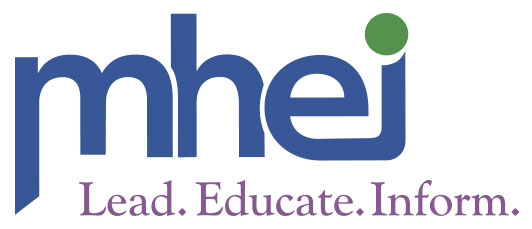While January often reminds us we are in the “dead” of winter, it also signals a time of “renewal.”
People who make resolutions or set intentions for the new year are still committed to achieving them. Spring is on the horizon, and we dream of—and plan for—the days of summer, including vacations and time away from the daily grind.
During this time of rebirth, I feel compelled to examine old habits and old thinking of mine that, for many reasons, may no longer be accurate—or relevant. With that, I propose that we consider what it would be like if the assumptions we made about leadership were, unfortunately, wrong.
To begin this series I would like to ask the question, “What if our paradigm of leadership is wrong?” What if all of the books that we’ve read regarding exemplary leaders who are “hard-nosed,” “extraordinarily creative,” and/or “financial wizards,” are actually the anomalies of good leadership. What if these people are successful (by certain measures) enough to be lauded, but their model of leadership will not be successful for most organizations that struggle daily to remain relevant and viable. What if the reason these individuals are raised to the level of exemplary is because great leaders—the kind we all want to work for and be—are not nearly as demonstrative, driven toward easily measured results or relentless in their own myopic sense of what is important.
Surely, we’ve all heard tales of leaders who yell at staff, create ultra-competitive work places and require tireless hours of endless work. Yet, these leaders may have also taken their organizations through tumultuous times of financial peril and emerged on the other side a more successful organization with a greater foothold in the industry. Their story is easily conveyed.
If this paradigm of leadership is incorrect, then what is the accurate version? Could it be true that most great leaders really do “fly under the radar?” Do they think about their staff and implement policies and processes that elevate those individuals? And maybe they are wanting and able to do these things while still paying attention to customer needs and the organization’s bottom line.
This might lead us to conclude that good—or even great—leadership is more prevalent in our organizations than we believe. And perhaps that realization moves us away from striving to emulate the leaders whose stories have been the subject of books and films. That shift allows us to focus on the smaller, under the radar things we know are tenets of good leadership and concentrate on improving those.
The problem with this approach, of course, is that those admirable leaders often are not in the spotlight and their value often is not appreciated.
What if we could recognize the wonderful leadership activities our colleagues are engaged in and document those in such a manner they would be useful to a wider audience? I’ll bet that every manager/leader has a story about themselves or a colleague that exemplifies the type of leadership that is engaging, productive, staff-centric, selfless and honorable—the type of leader we would all enjoy working for and with. As singular incidents they not get much attention. Yet, their impact on any one staff member may be tremendous.
And if an organization compiled all of these leadership examples, that would make for that organization operating toward a specific mission, through its own values, industry and community environment.
Mark Rulle is president of the Maryland Health Care Education Institute. Mark has worked in the health care industry since 1980 developing leaders and improving organizations. His doctoral research focused on employee empowerment and Mark has spent his career assisting others in becoming better at engaging others, being accountable and holding others to that same standard, and achieving results.

